The main objective of functional testing is to determine whether a particular software performs what it was designed to do.
To begin with, software is driven by business requirements, which is the main reason for their development. Functional testing satisfies these business requirements as a group and individually as well. It is important for functional requirements to be testable. This type of testing takes high priority in the development life-cycle.
Functional testing can be implemented right from the beginning of a software development life-cycle since requirements are created from the start. The earlier that questions are answered the better the progress in the development life-cycle. Black box testing is based on the external behavior of the software without the need for knowledge of the programming code. Security testing is a typical example of this type of testing where the software is tested for functions related to threats from hackers, viruses, and more. The tester only knows the inputs and the expected outcome. The tester does not know the flow of how the program arrives at the output. In addition, a functional tester does not require any knowledge except the specifications.
Black box testing has its set of pros and cons. The major advantage is that it is an unbiased form of testing since the designer and tester are independent and have no relation during the process. The test is conducted from the end-users’ viewpoint, which is most important. In addition, the tester does not require having specific programming knowledge. One of the drawbacks is that a few program paths may go untested since it may not be possible to test every input stream due to time constraints.
White box testing uses program codes to examine outputs. In this type of testing, the tester is aware of what the program is supposed to. The tester can determine when a program deviates from its intended goal. The testing can validate security functionality and uncover any vulnerabilities in the software. It is best to perform white box testing during the unit testing phase although it can be performed at any time during the software development life cycle. A test needs to think like an attacker to create tests that exploit the software. In addition, testers need to have knowledge of the different tools and techniques available.
Automated Functional Testing
Functional testing is conducted to ensure that a software meets all of its specified requirements in a project life-cycle. Automated functional testing is the process of creating automated test scripts from manual functional tests for software applications. Automated testing uses software designed to monitor software testing, a function that was conducted manually prior to automation. Manual testing as an independent type of testing has its set of risks, with a number of costs associated with it. Most software applications have an extended life span where several patches need to be added to the system. Through automated functional testing, developers can ensure that regression testing is completed in a timely and cost effective manner with the minimum errors.
Testing engineers are responsible for developing automated functional testing processes. These engineers have the requisite skills in testing. This type of testing ensures that functional requirements of a software application are complete and accurate. The main benefit in automated functional testing is that the test program can be reused. The process involves the creation of scripts by testing engineers that are used to complete the desired functional test. Each test is created individually and combined together to create an complete test suite. The results are delivered to the managers to enable validation in real-time, which increases the effectiveness of the software development process. Automated functional testing cannot replace the logical thinking and evaluation of humans, however, it can be used to test repetitive procedures. This type of testing is most effective in combination with other types of testing.
Often, the testing phase of a software can take long than the production phase which can take its toll on the testing team if only manual tests tools were used. Automated functional testing tools save plenty of time in detecting particular errors, defects, or bugs in a program. Depending on the nature of the software being developed, it could take from a few hours to months for manual testing to be accomplished as compared to automated testing which can be accomplished in less than half the time.
Automated software test tools function as virtual testers that explore every program function that is not possible by a human tester. The testing tools take note of every aspect of the program that is functioning as well as not in working order. The results are analyzed by a programmer and necessary corrections are made. The process can be repeated once the corrections are done.
MICROFOCUS
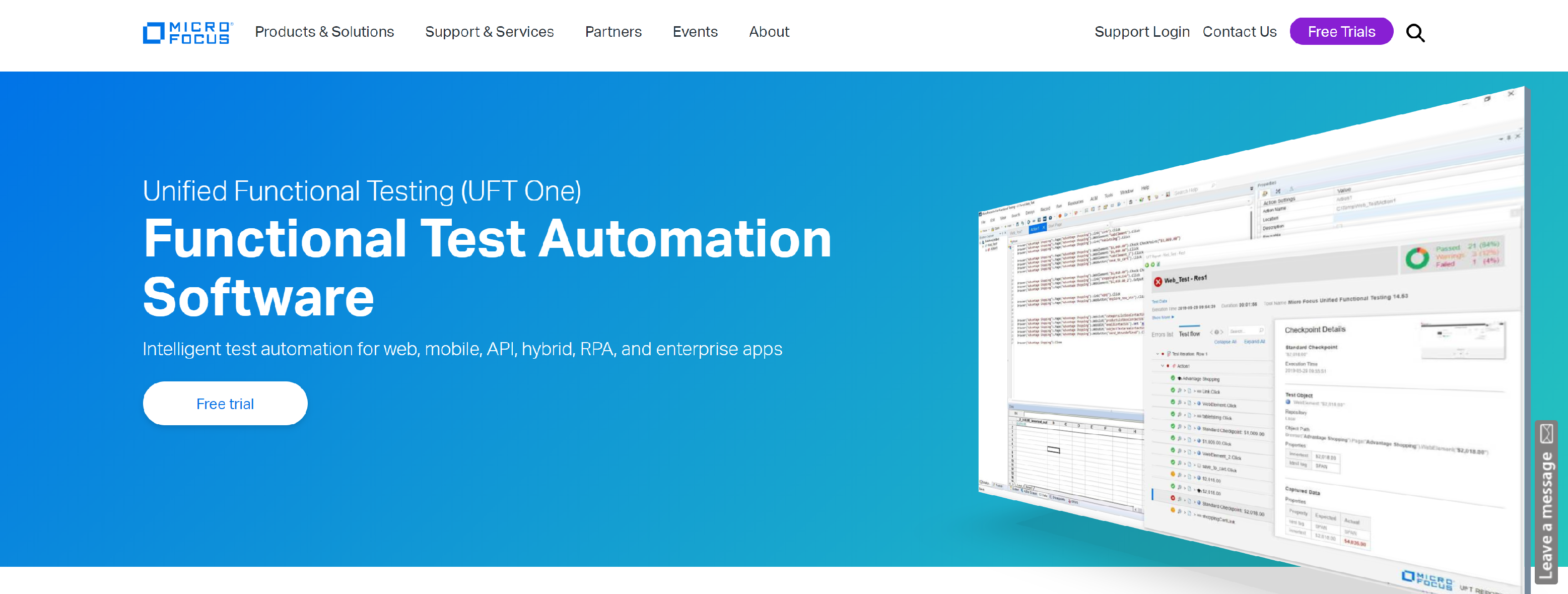
Micro Focus UFT provides automated testing of web, mobile, API, hybrid, RPA and enterprise apps. Reduce the cost, time spent & complexities of functional testing.
- Test execution at full velocity
- Comprehensive technology stack
- AI-based object recognition
- Mobile testing on local devices
- Ultra-agile by design
- True cross-browser coverage
TRICENTIS
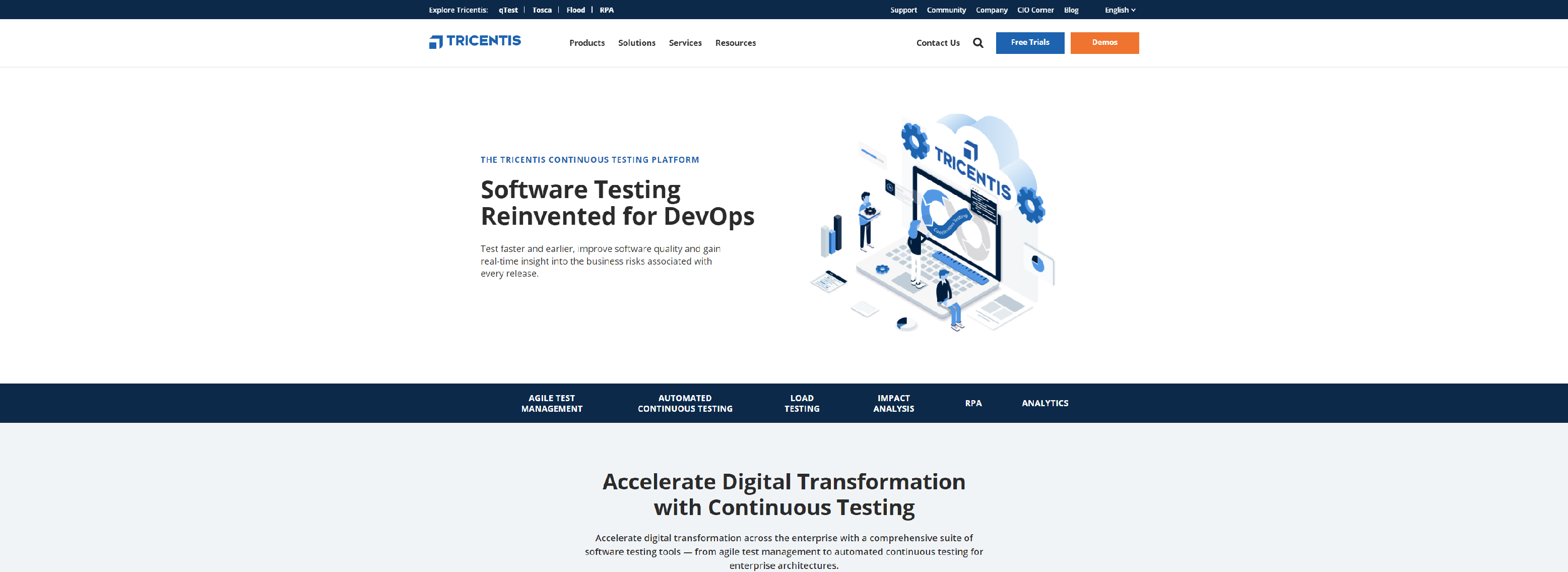
Accelerate software testing to keep pace with Agile and DevOps – with the industry’s most innovative automated software testing tools.
- Continuous Testing
- Unprecedented insight
- High speed releases
- Packaged app testing
- Scale open source
- Load testing for DevOps
SAUCELABS
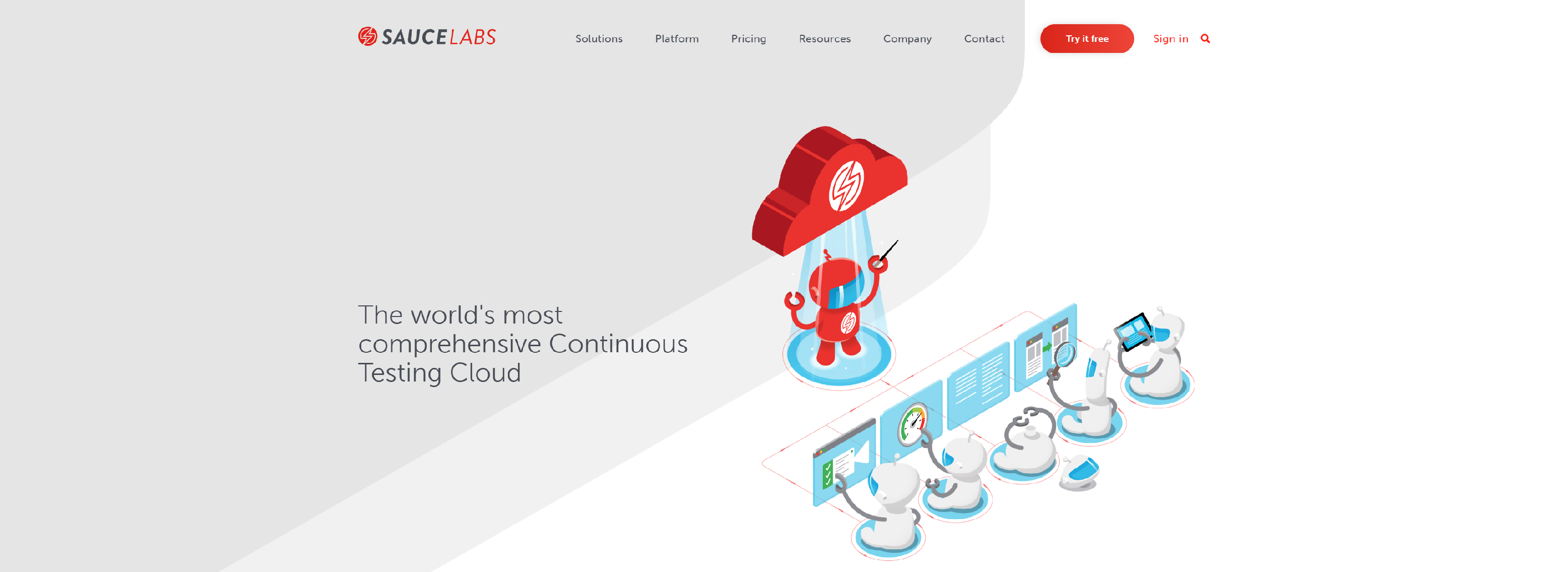
Live, automated and continuous testing for web & mobile apps on the world’s largest cloud-based test platform.
- Comprehensive coverage
- Scalable for CI/CD
- Single platform for 360° UX
- Increased efficiency
- Enterprise security and support
TESTCOMPLETE
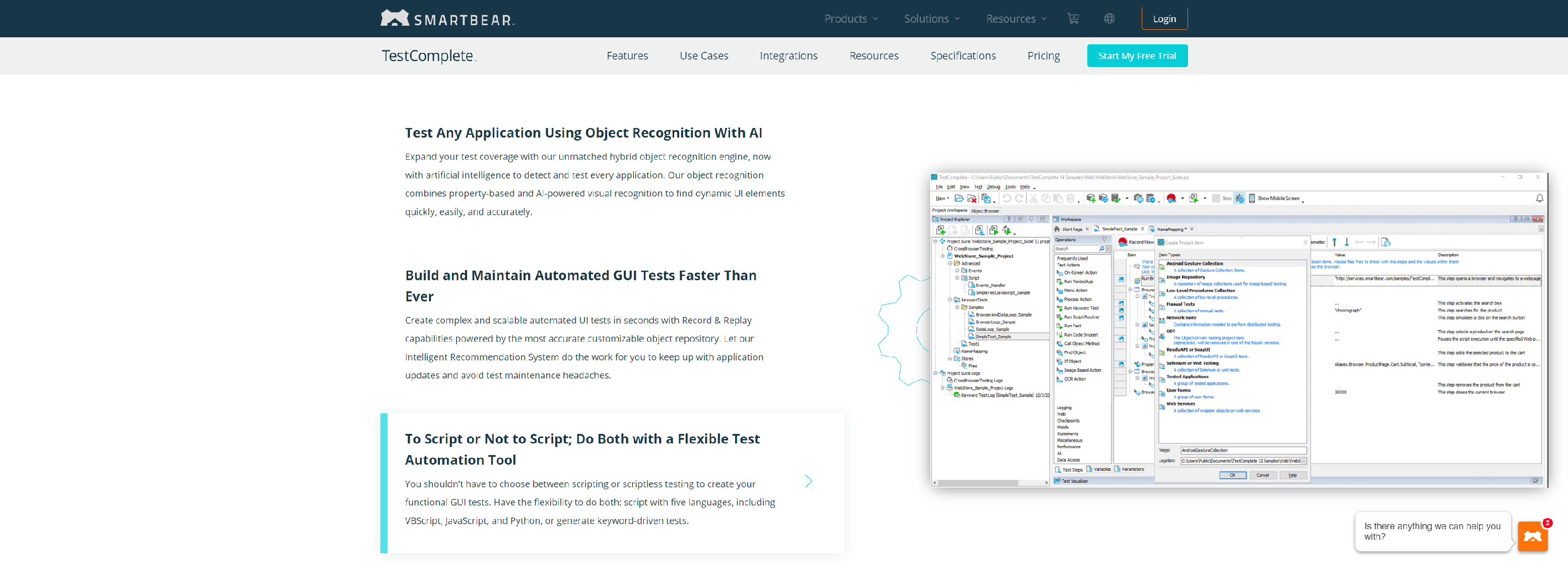
Easily automate your functional UI tests for Desktop, web, and mobile apps with TestComplete.
- Automate Business Requirements with Native Support for BDD Syntax
- Don’t Start From Scratch: Reuse Your Functional Tests
- Use Automated Testing Tools Built for Continuous Testing
- Support That’s Actually Supportive
WORKSOFT

Worksoft provides the world’s leading automation platform for managing all aspects of enterprise application projects.
- Code-free solution that builds easy to read narratives
- Build automation 3 to 5 times faster than other solutions
- Test 500,000+ business process steps in hours
- Maximize test reuse with flexible test libraries
- Get complete documents for SOX, training and more
- Execute tests created in SoapUI, HP UFT or Selenium
- Test mainframe, SAP GUI, modern web, mobile, SAP FIORI 1610 and much more
- Run tests as part of a Continuous Testing or Continuous Delivery cycle
- Integrate with HP ALM, IBM RQM, SAP Solution Manager, JIRA, and ServiceNow
LEANFT
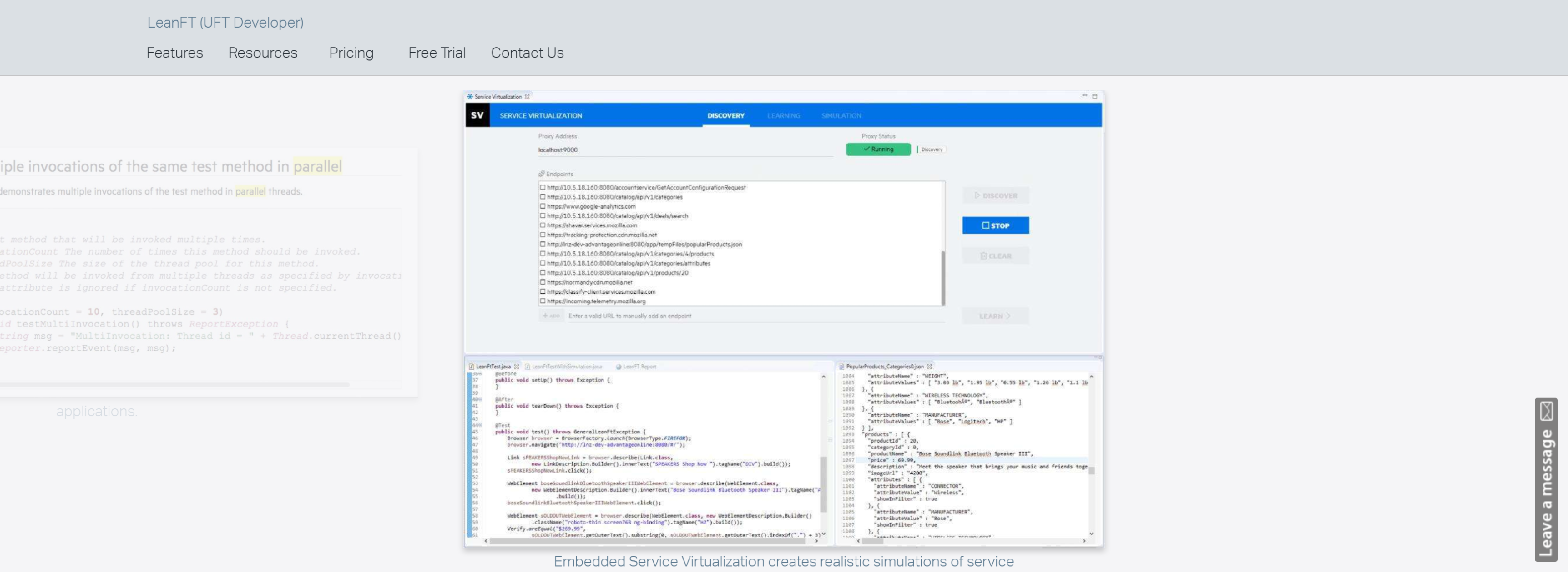
Micro Focus LeanFT provides powerful developer-friendly testing, integration, and delivery tools that help businesses achieve new standards in automated testing for Agile & DevOps teams.
- Shift-Left Testing
- Robust and resilient tests
- Efficient test execution
- Comprehensive reporting
- Testing with Selenium made easy
- Embedded Service Virtualization
SOAtest
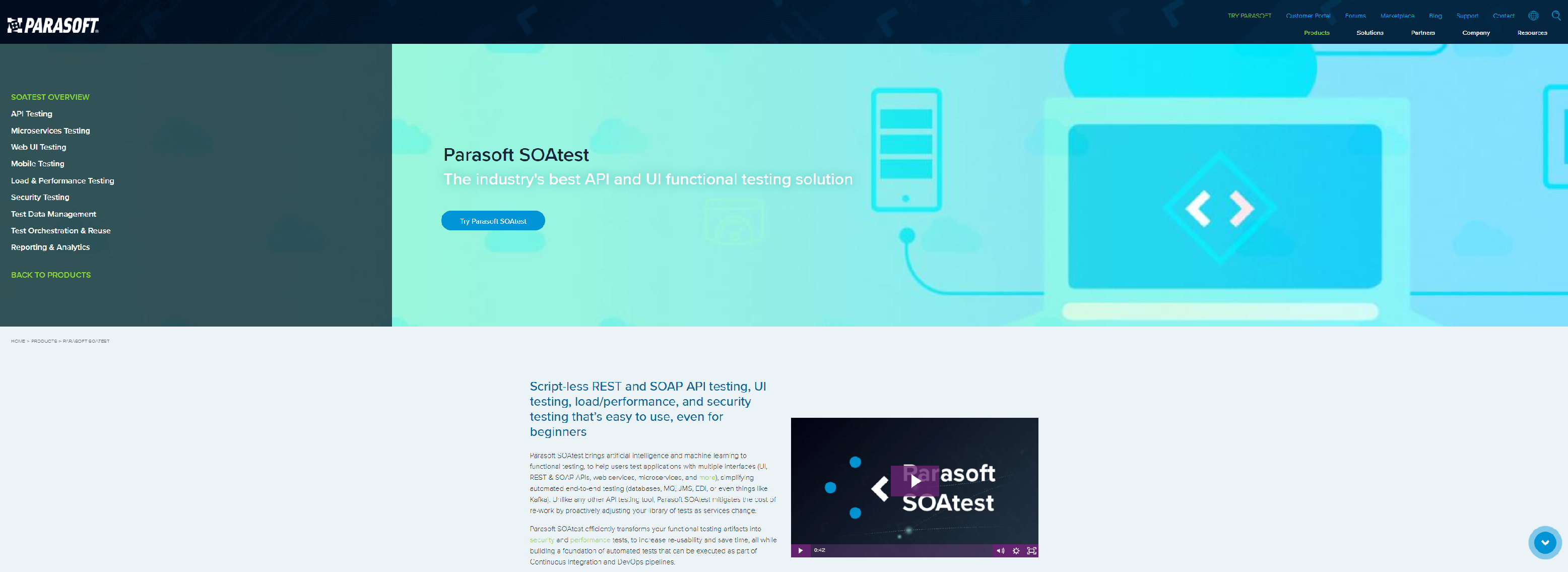
SOAtest helps users test applications with multiple interfaces (i.e. mobile, web, API, database). Its automated API testing reduces re-work by proactively adjusting your library of tests as services change, and automatically turning functional tests into security and performance tests to save valuable time.
- API Testing
- Load and Performance Testing
- Microservices Testing
- Web UI Testing
- Mobile Testing
- Security Testing
- Test Data Management
- Test Orchestration & Reuse
- Reporting & Analytics
CROSSBROWSERTESTING
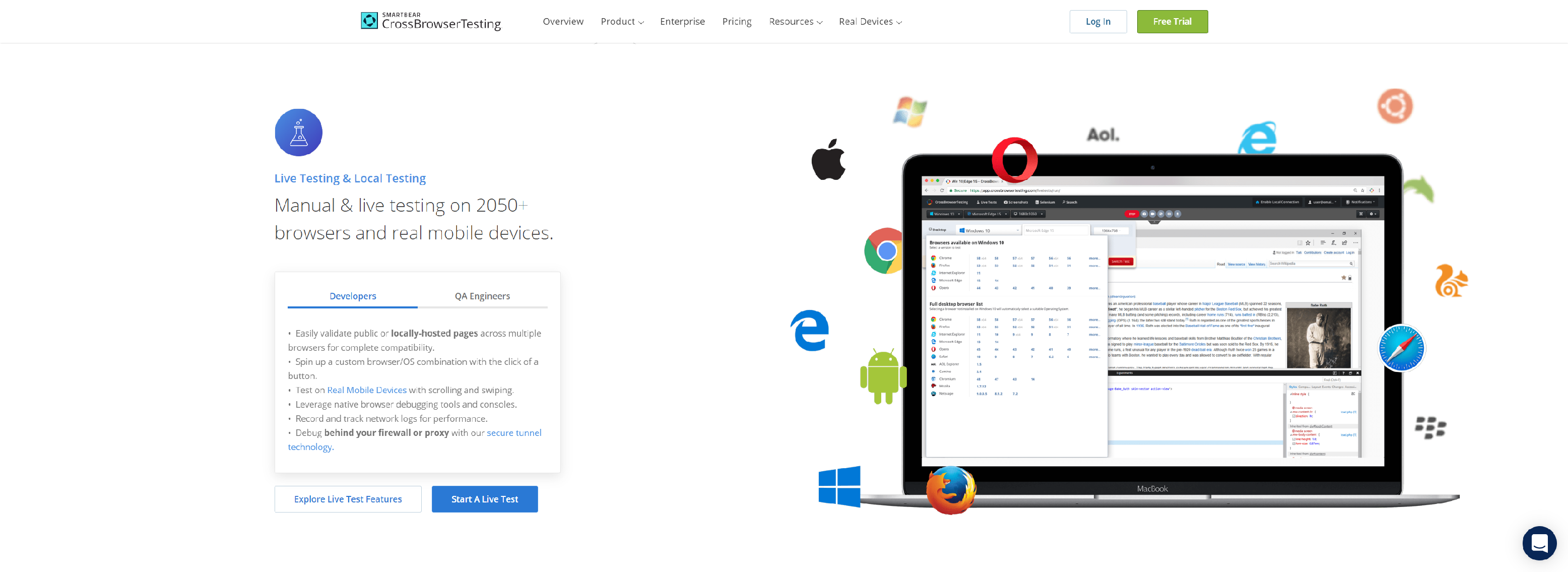
Browser Testing made simple! Run automated, visual, and manual tests on 2050+ real browsers and mobile devices.
- Manual & live testing on 2050+ browsers and real mobile devices
- Run Selenium or Appium Easily in the Cloud, Earlier
- Easily run single or parallel screenshots and regression tests
CYPRESS
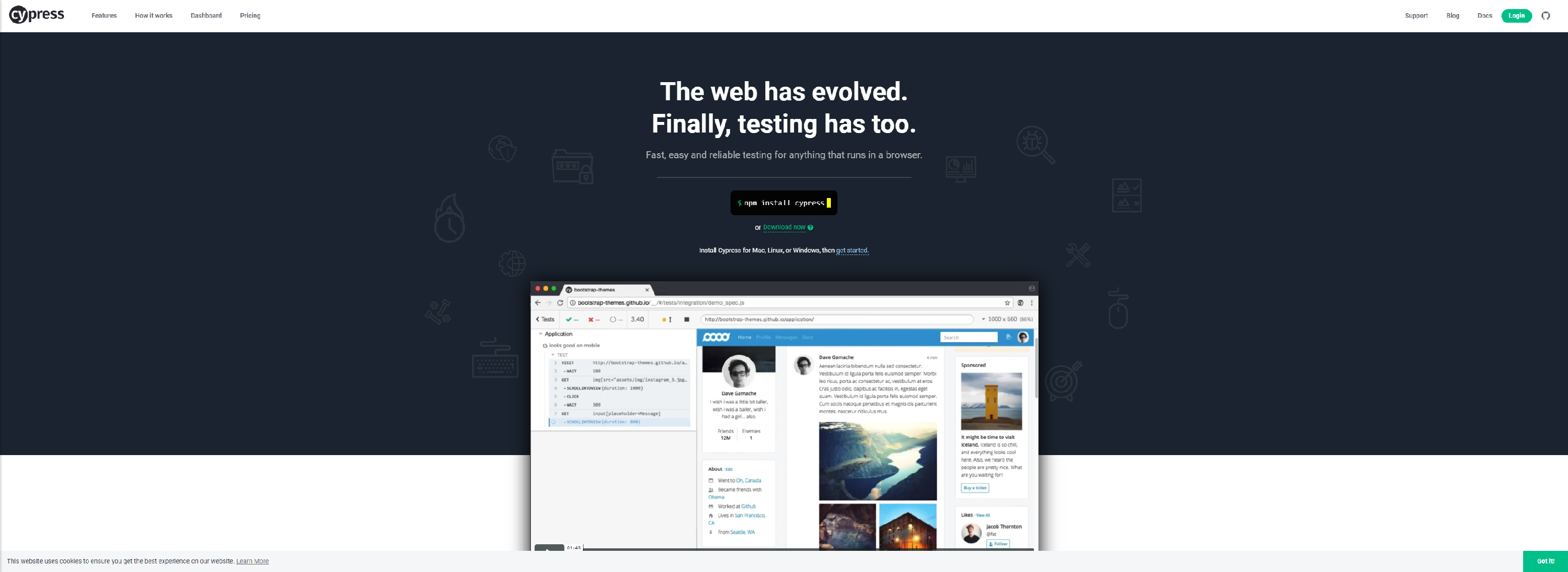
Fast, easy and reliable testing for anything that runs in a browser. Install Cypress in seconds and take the pain out of front-end testing.
- Time Travel: Cypress takes snapshots as your tests run. Hover over commands in the Command Log to see exactly what happened at each step
- Debuggability: Stop guessing why your tests are failing. Debug directly from familiar tools like Developer Tools. Our readable errors and stack traces make debugging lightning fast
- Automatic Waiting: Never add waits or sleeps to your tests. Cypress automatically waits for commands and assertions before moving on. No more async hell
- Spies, Stubs, and Clocks: Verify and control the behavior of functions, server responses, or timers. The same functionality you love from unit testing is right at your fingertips
- Network Traffic Control: Easily control, stub, and test edge cases without involving your server. You can stub network traffic however you like
- Consistent Results: Our architecture doesn’t use Selenium or WebDriver. Say hello to fast, consistent and reliable tests that are flake-free
- Screenshots and Videos: View screenshots taken automatically on failure, or videos of your entire test suite when run from the CLI
SOAPUI

SoapUI is the world’s most widely-used automated testing tool for SOAP and REST APIs.
- Creating and Running Tests
- Working with Properties
- Understanding TestSteps
- Working with Assertions
SAHIPRO
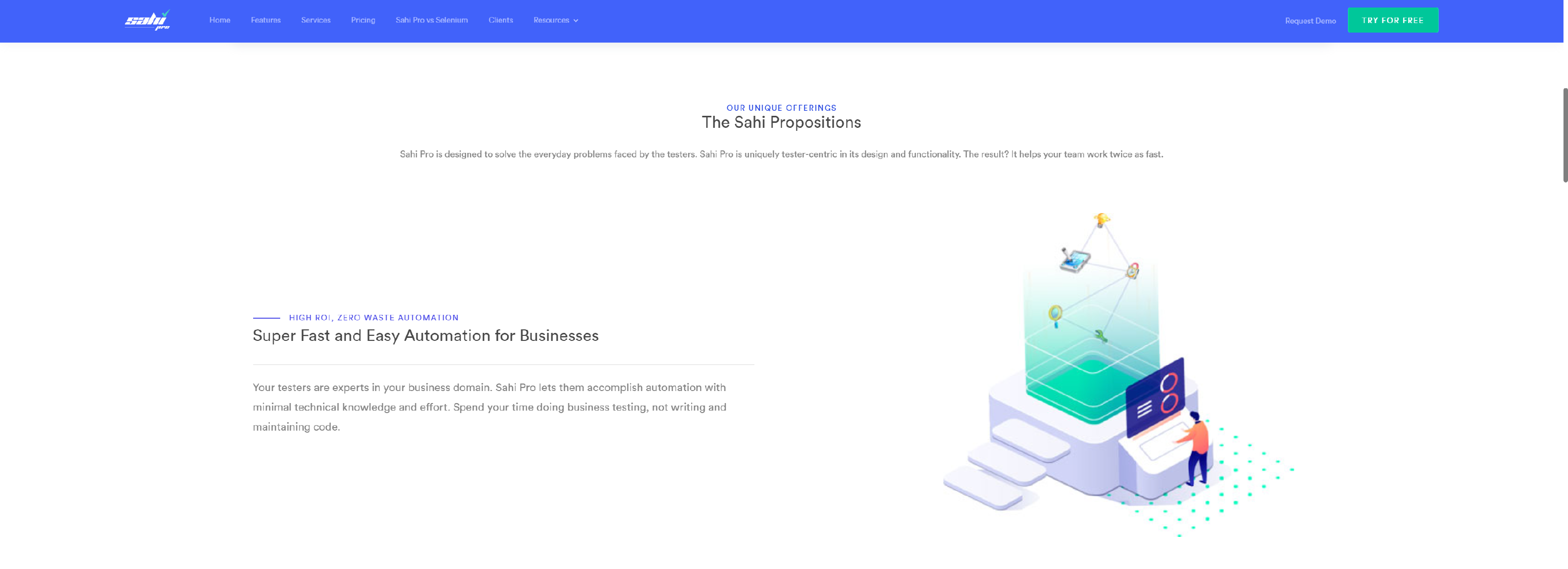
Sahi Pro is designed to solve the everyday problems faced by the testers. Sahi Pro is uniquely tester-centric in its design and functionality.
- Super Fast and Easy Automation for Businesses
- One Automation Tool for All Technologies
- Your Automation Partner for Excellent Support and Services
KATALON
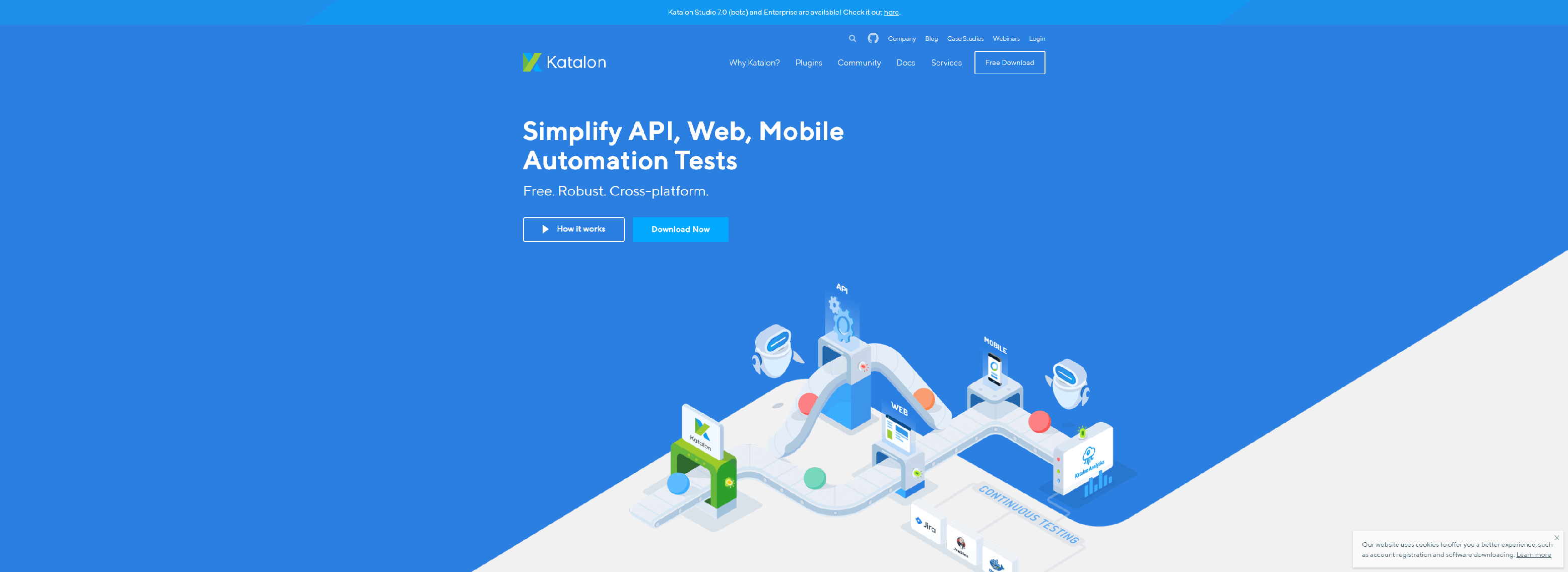
Built on the top of Selenium and Appium, Katalon Studio is a free and powerful automated testing tool for Web testing, API testing, and Mobile testing.
- Simple, intuitive and detailed tool for agile and automation
- Easy to use, good UI and the BEST in the industry of automation
- Easy implementation, integration with CI/CD, fast and reliable executions
INFLECTRA

Inflectra offers powerful software testing tools and project management software for automated project management, quality assurance, and test management.
- Scriptless Automation
- Microsoft Dynamics and Salesforce
- Robust Automation
- Flexible & Extensible